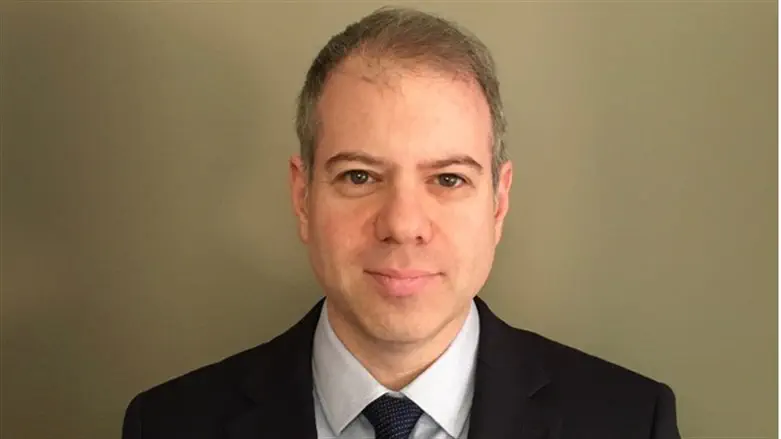
When Mahmoud Abbas simultaneously libeled Israel and denigrated the memory of the Holocaust at a press conference in Germany last month, he was acting in a manner that was entirely consistent with his decades-long role as a Palestinian Arab leader.
Ostensibly, the outburst about Israel committing “50 Holocausts” against the Palestinian Arabs came in response to a question about last week’s anniversary of the Munich massacre at the 1972 Olympics, where Palestinian terrorists slaughtered 11 members of the Israeli team. Yet even the briefest review of Abbas’s career reminds one that Holocaust denial and terrorism are never very far from the surface where Arafat’s successor is concerned.
For the real Abbas to be exposed - the Abbas so many American and European politicians don’t want to talk about - all it takes is the right circumstance, like when he was put on the spot in August as he was asked whether he intended to apologize for one of the most notorious acts of terrorism in post-war history, a crime that he himself allegedly helped to finance.
Although the vile sight and sound of the Abbas rant initially seemed destined to capture most of the media attention, the man next to him managed in his reticence to upstage his official guest. German Chancellor Olaf Scholz’s conduct at the press conference thus revealed other truths, not those of avowed enemies of the Jewish people like Abbas, but about what Jews can expect from some leaders who are portrayed as allies.
Scholz stood passively and silently by while Abbas once again publicly smeared the Jewish State, this time in Berlin, heart of a “new Germany.” It was only last year, at the Tokyo Games, that the International Olympic Committee finally acceded to a request to honor the 11 Israeli athletes with a moment of silence. Just as the IOC’s 49-year silence spoke volumes, so did that of Scholz.
In the wake of the August press conference with Abbas, the initial attempt to pin this failure on logistics was both laughable and insulting. This week’s effort at damage control during the official visit of an Israeli prime minister who is desperate for international recognition was low-hanging fruit.
No subsequent statement, apology or spin that purports to explain away Scholz’s shameful moment of silence can detract from the fact that, when it mattered, Germany’s leader had nothing to say.
The German government writ large also has nothing to say about the massive amount of German money, both governmental and private, that annually funds anti-Israel organizations, including some allegedly linked to terrorist groups. Nothing to say in favor of Israel, that is.
When it comes to the largesse that Germany affords groups opposed to Israel, the Germans are quite willing to speak out with strident criticism. The problem is that this criticism is aimed squarely at Israel for seeking to stop the flow of money to radical groups.
And yet 50 years after Munich, 77 years after the Holocaust, and some 2,000 years after the destruction of the Second Temple, far too many Jews are still looking to people like Scholz for the ultimate “response.”
During the harrowing ordeal of the Munich attack, countless people around the world watched and waited with bated breath for an effective response from men like Olaf Scholz, men such as Willy Brandt, the German chancellor at the time, and Avery Brundage, who then served as President of the IOC and infamously declared that “the Games must go on” despite the carnage.
Brandt’s government, along with other regional and local officials of a similar bent, oversaw the entire fiasco of the Munich Games. When another group of Palestinian Arab terrorists subsequently hijacked a Lufthansa plane shortly after the Olympics, it was his government that agreed to a shameful deal to free the surviving Munich attackers, who wound up spending a total of less than eight weeks in a German jail.
The Munich murderers, along with the Lufthansa hijackers, all received a hero’s welcome in Libya, complete with a press conference of their own that was broadcast worldwide. In Brandt’s haste to strike a deal with terrorists for the benefit of Germany, one can see a foreshadowing of the disastrous new version of the Iran deal that Scholz is now pushing.
Thus, 50 years of covering up the truth about the German government’s mishandling of the entire affair was set in motion along with a German denial of responsibility.
Last week’s somber anniversary was yet another reminder that Jews need to stop looking for a response that will never come from those who are incapable of delivering it. Who knows how many of the 11 athletes could have been saved had the Israelis only had their own security team?
The lesson of Munich is the lesson of so many a Jewish tragedy – the responsibility to protect and defend Jewish lives can never be outsourced – it must come from Jews alone.
Men like Scholz and German President Frank-Walter Steinmeier may from time to time issue nice, soothing pronouncements as they have done recently, but they can never provide real answers to the challenges that Jews face.
Those answers can only come from Jewish mouths, mouths that refuse to be silent along with hands that refuse to be still.
Eric Ruskin is an attorney and a member of the Board of Directors of the Israel Independence Fund.